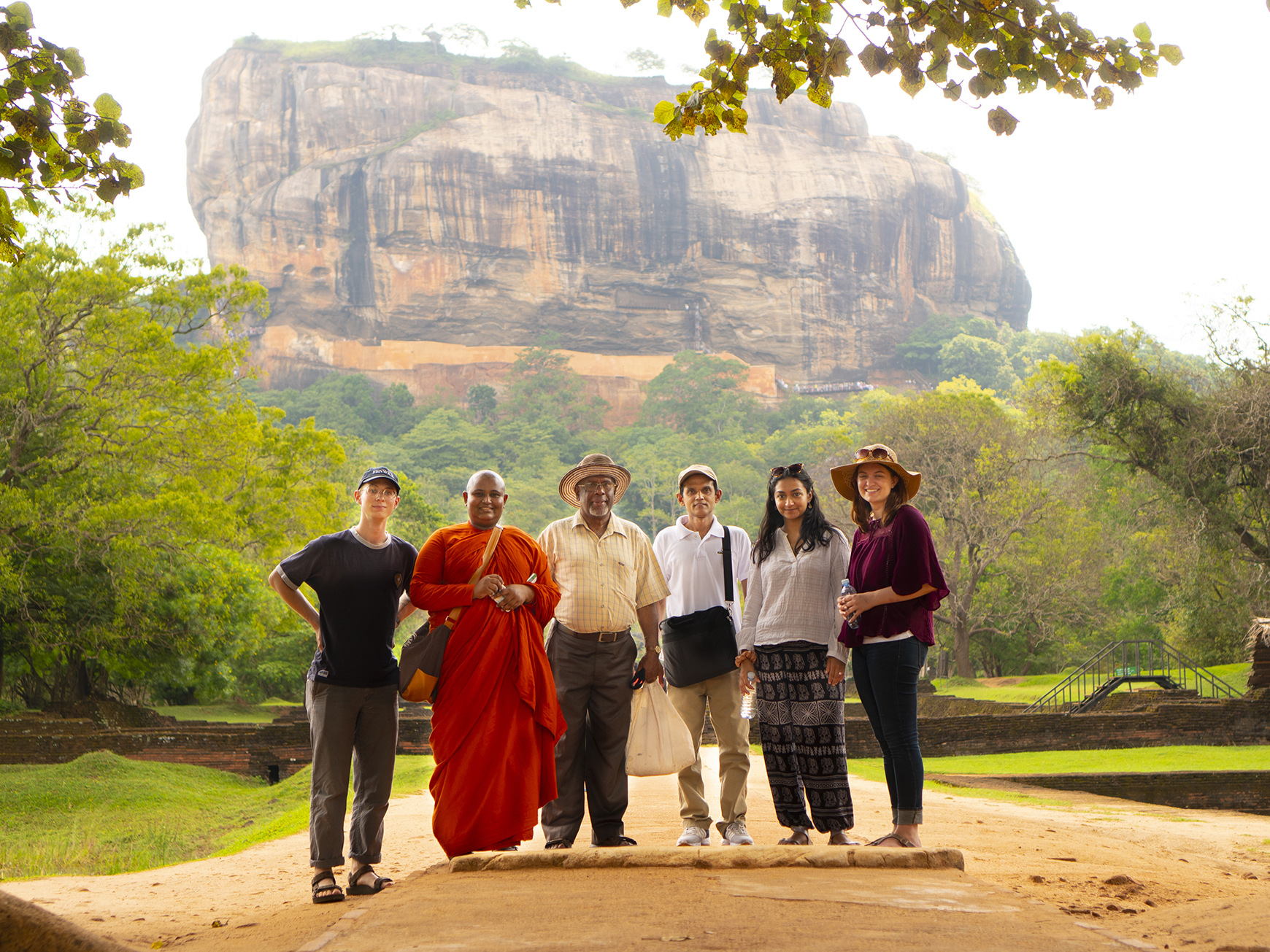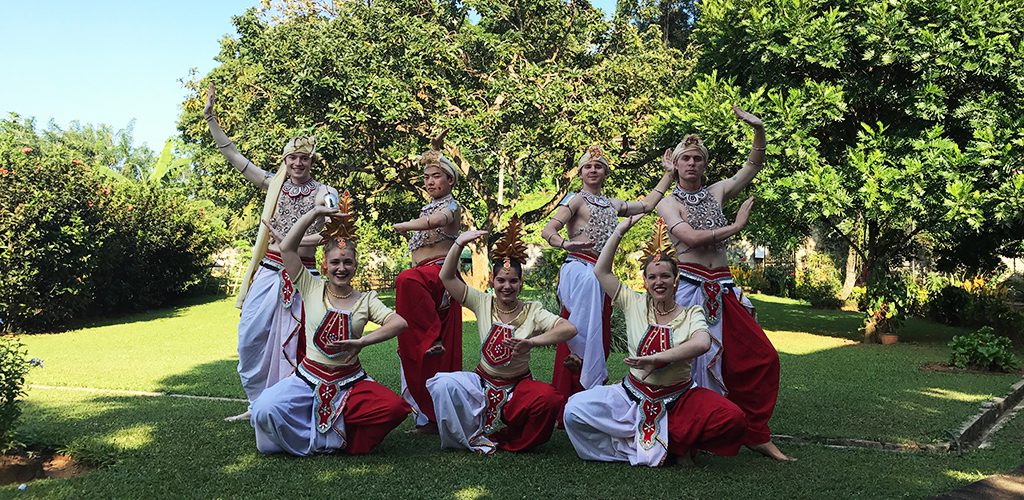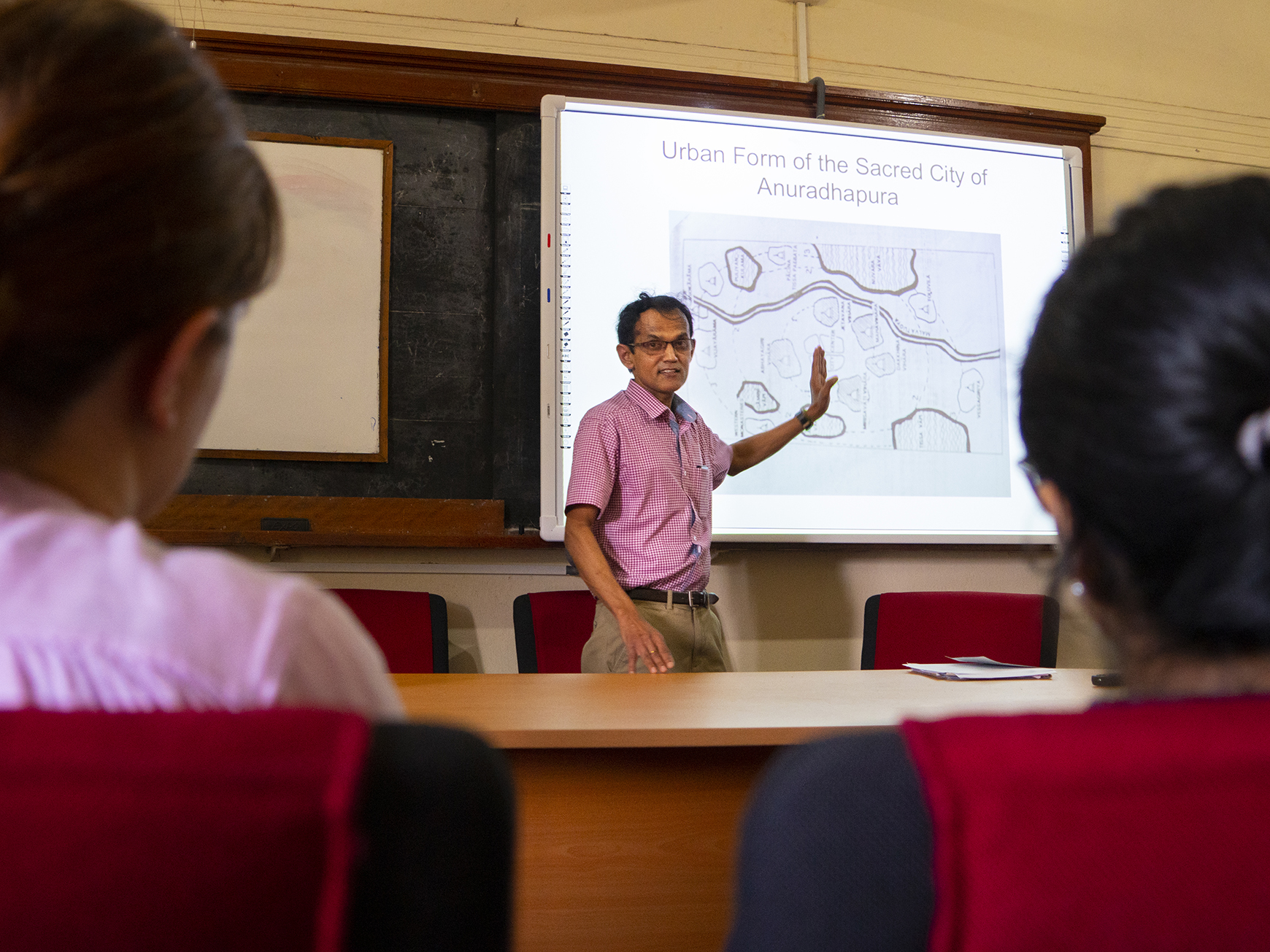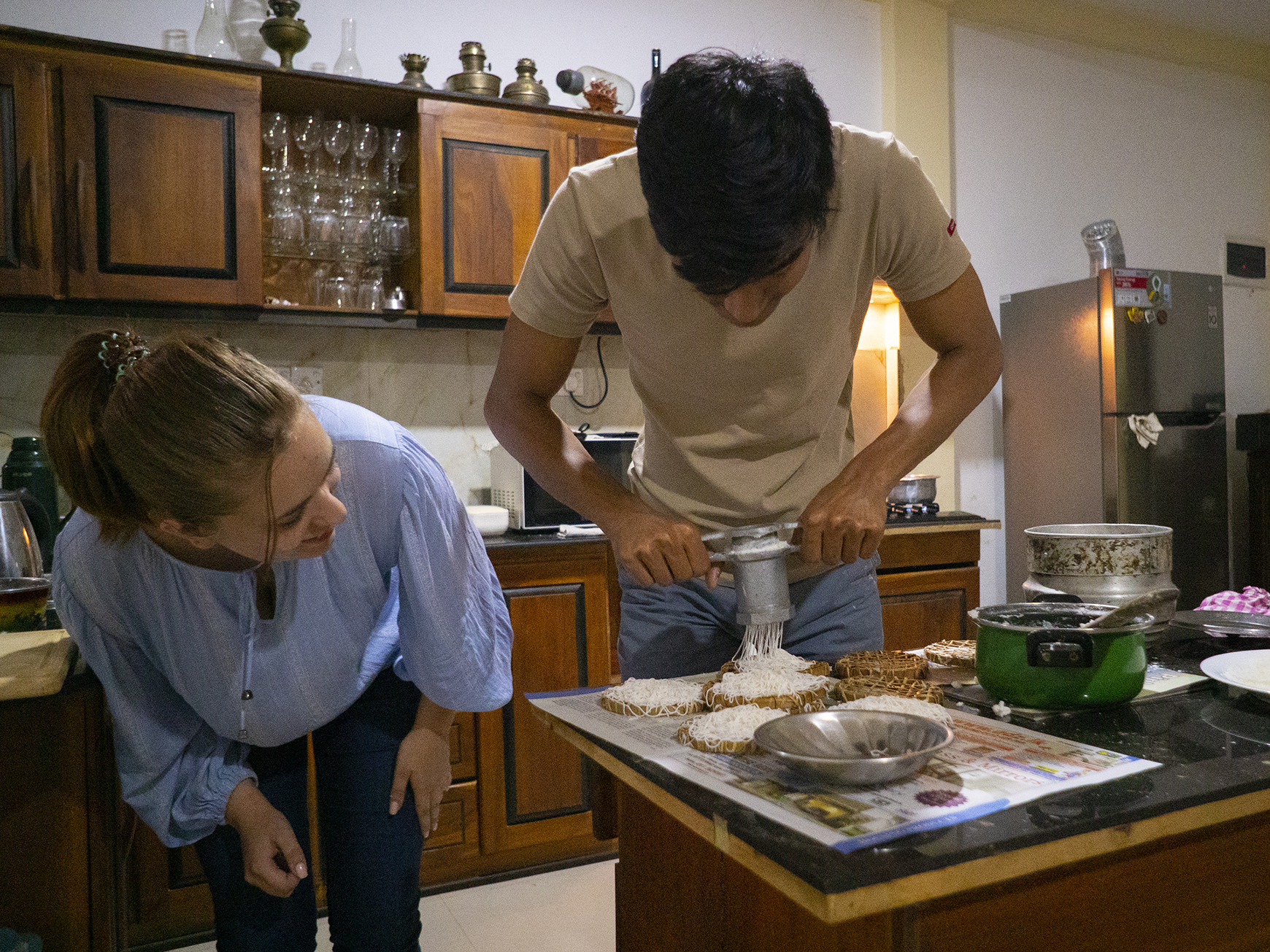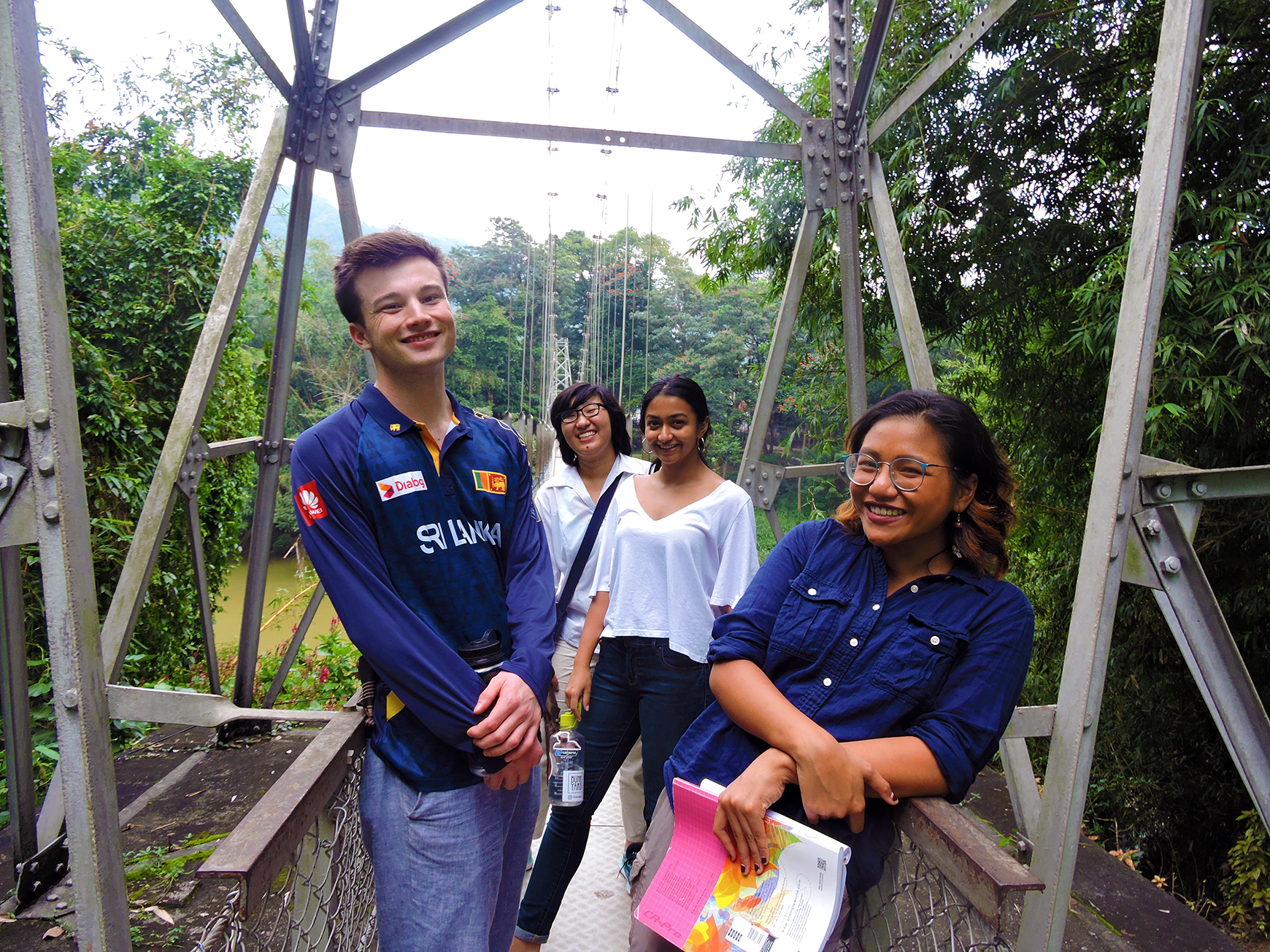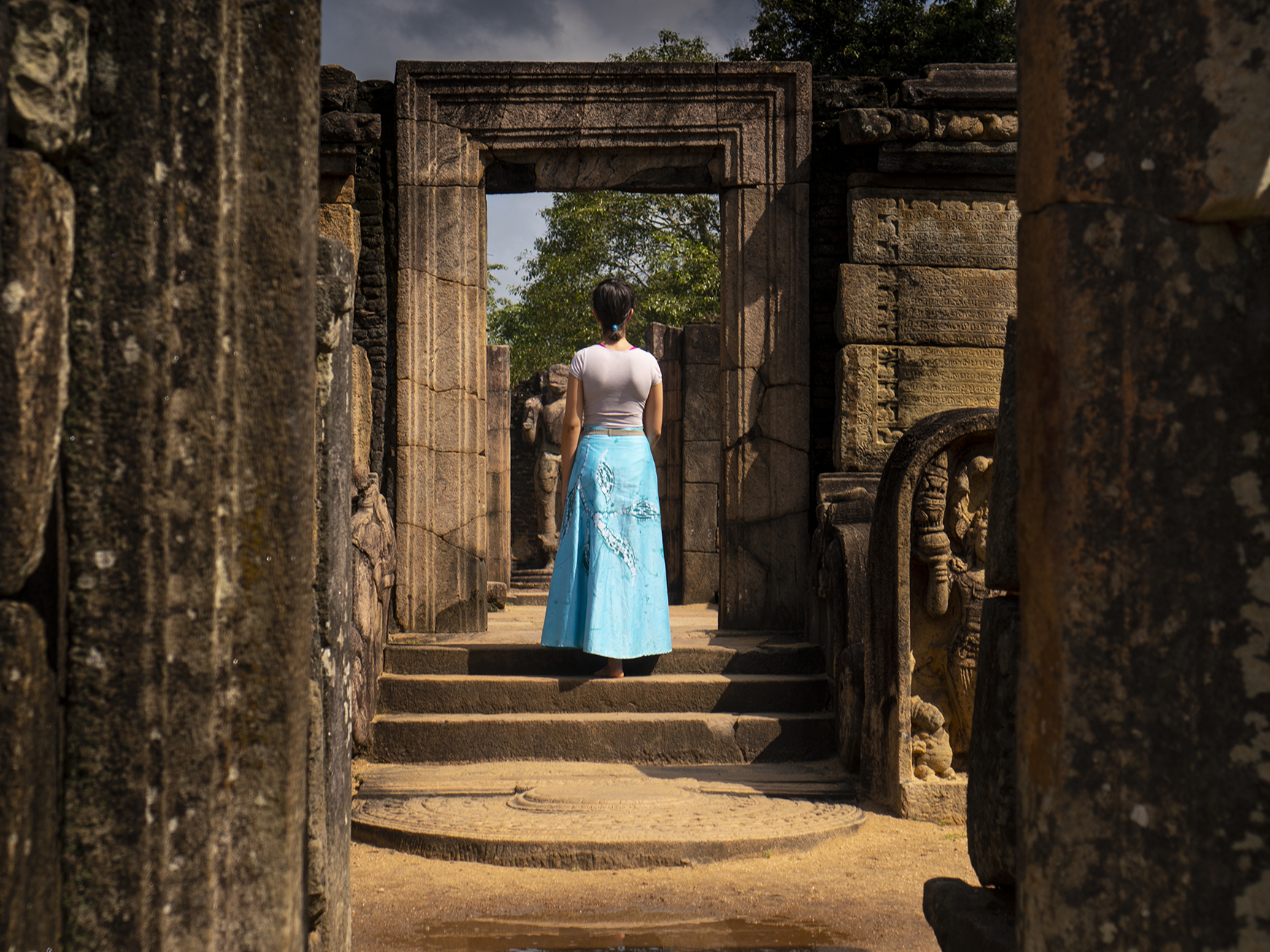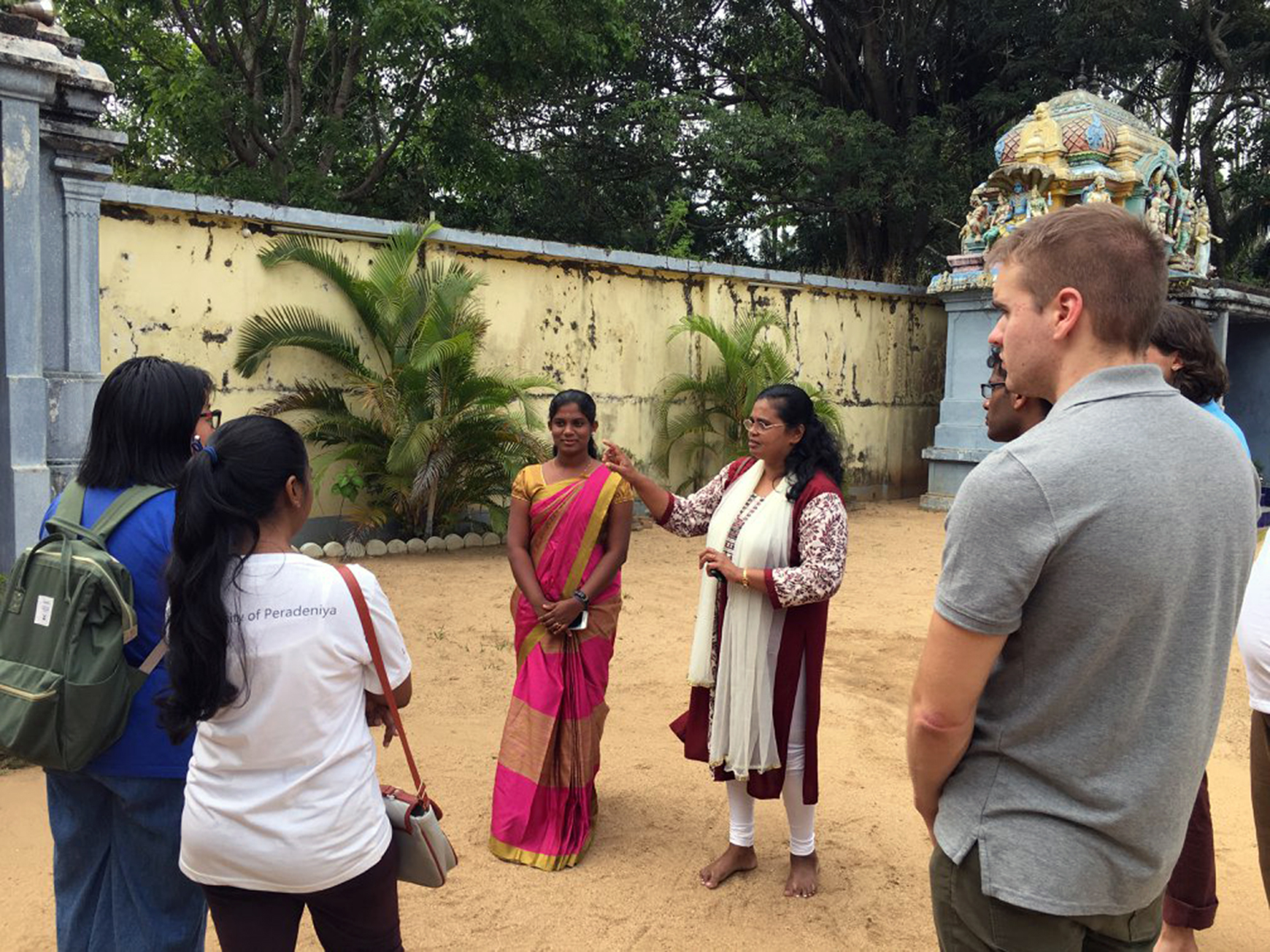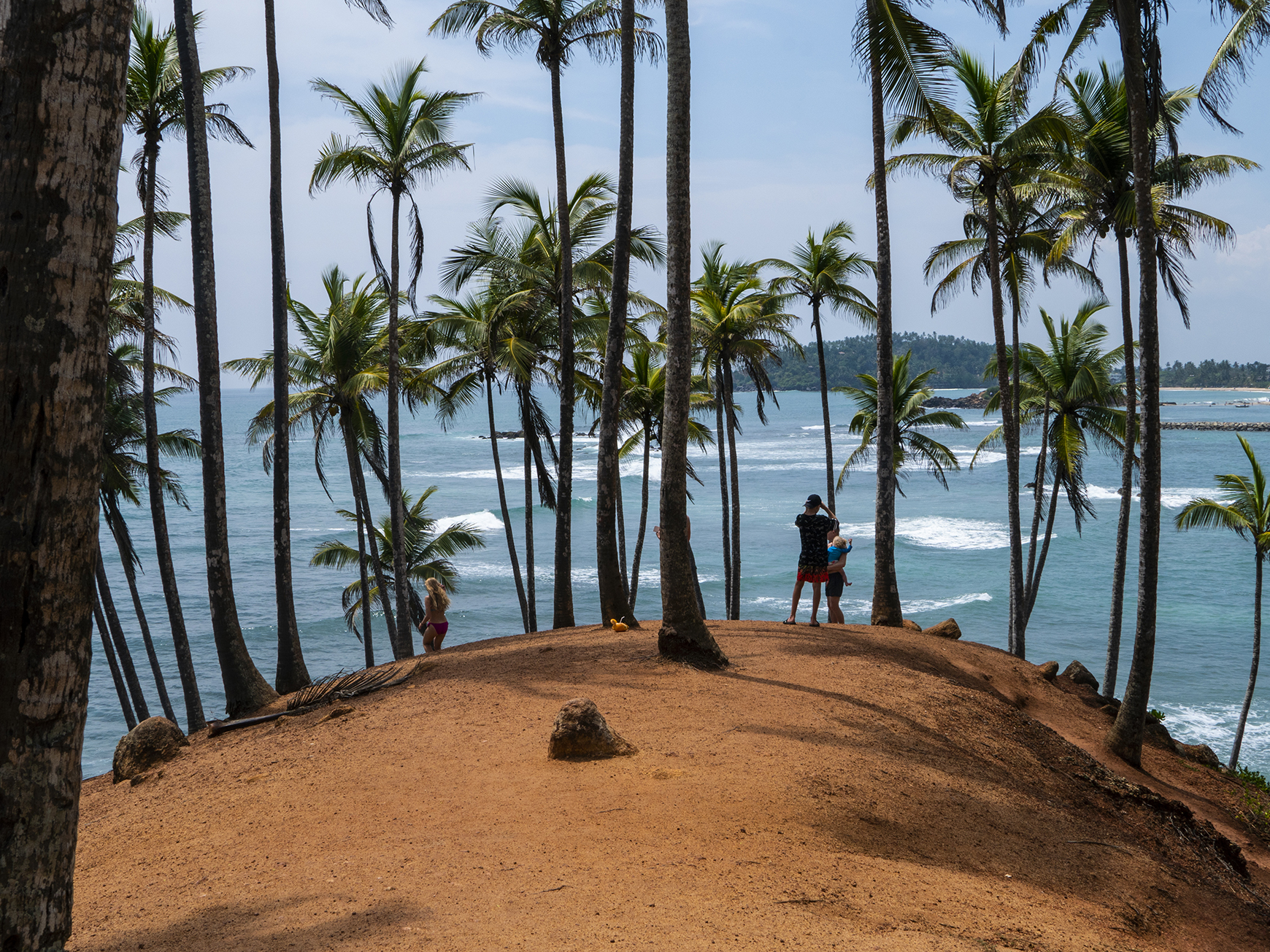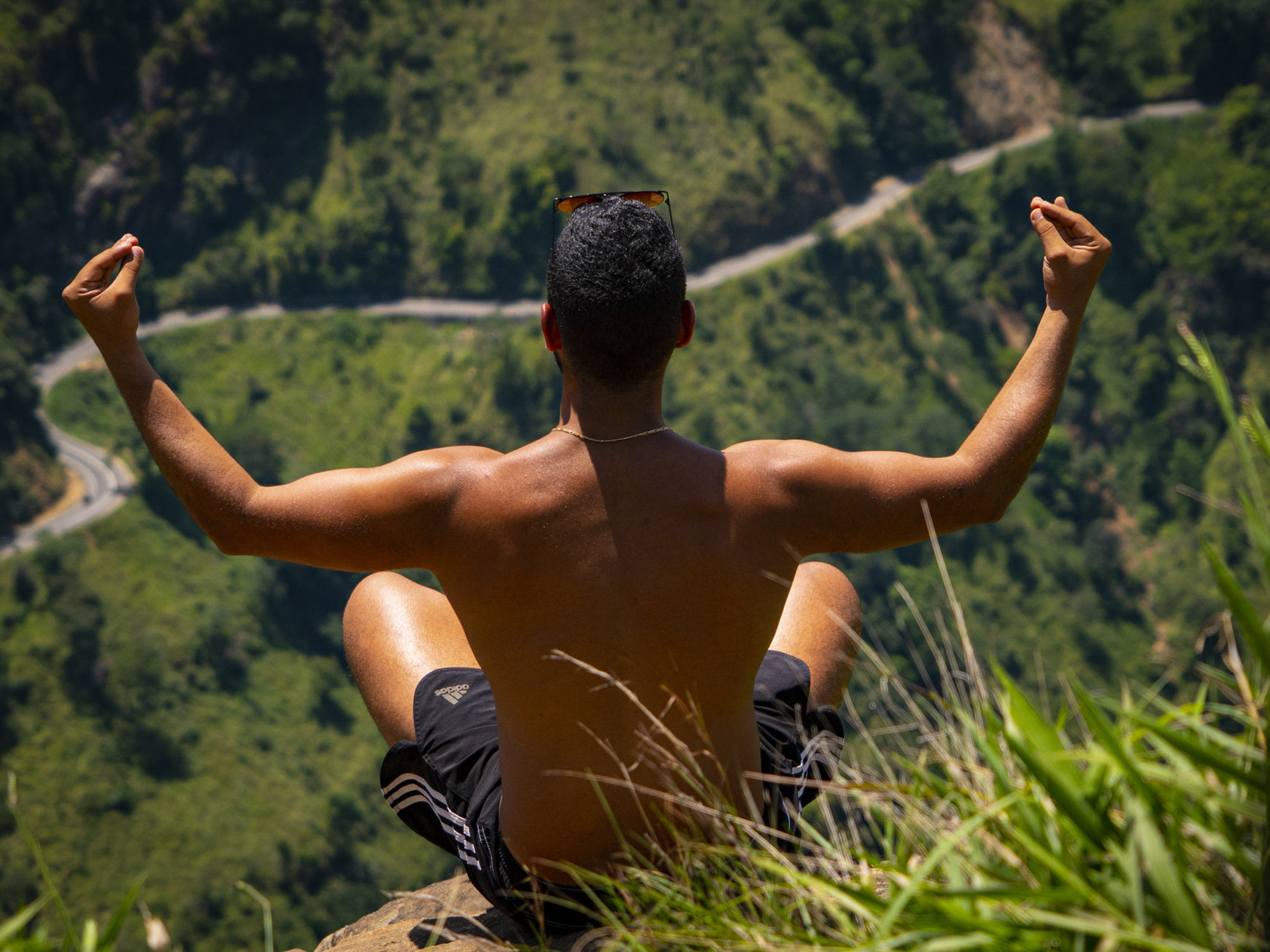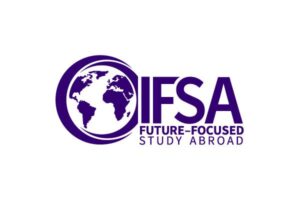Kandy, Sri Lanka
IFSA Study in Sri Lanka
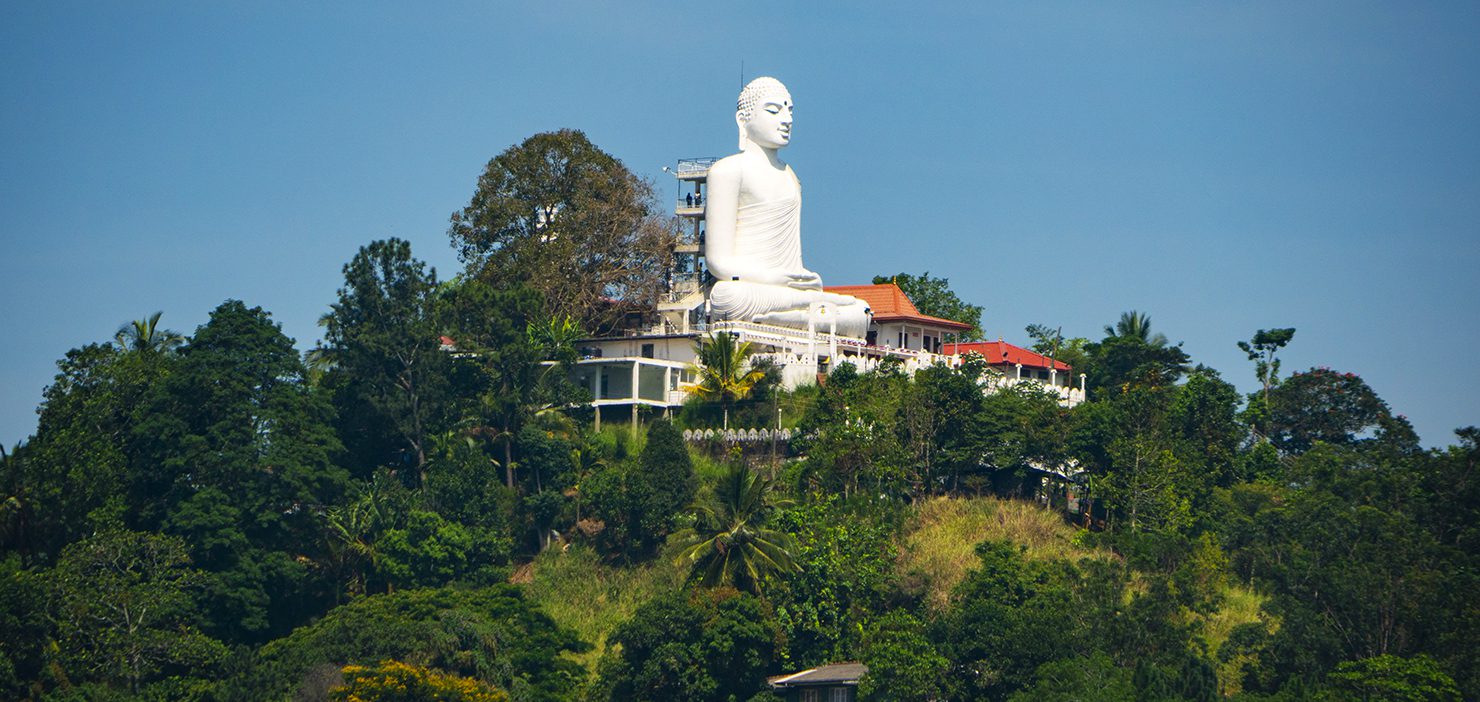

Program Overview
YOUR ONLY STUDY-ABROAD ACCESS TO THIS ISLAND NATION
Home of roaming elephants, tantalizing rice and curry, and ancient temples, this is one incredible place to pursue your penchant for the environment, religion, anthropology, NGO work, or even Fulbright aspirations. With no language requirement and family homestays, there are so many reasons to make beautiful Kandy your home for a while.
Come see why Lonely Planet named this country its top spot to visit for 2019 as you get to know a culture thousands of years in the making. It was also ranked the fifth best country to visit by CEOWORD Magazine in 2024.
Interested in doing research during your stay? See our sister program, IFSA Study in Sri Lanka: Research.
This is an exclusive IFSA-Designed Program. Learn more about these affordable programs here.
Details at a Glance
Application deadline
Minimum GPA
2.00
Credit load
12–16
Housing
Single Room Option, Homestay
Instruction language
English
Language prerequisites
None
Visa required?
Yes. Learn more.
Academics
Select IFSA classes for a total of 12-16 U.S. credit hours.
LANGUAGE ELECTIVE CLASSES
Developing skills in a foreign language can profoundly impact your life personally and professionally. Though language study is not required, students frequently report their language class as one of their favorites and the one they applied most outside the classroom. Not all language electives may be offered in a given semester depending on enrollment. Click on each link below for a detailed class syllabus.
Essential Sinhala
If you’ve never studied Sinhala before, you can take this optional, introductory class in Sinhala language and Sri Lankan culture. By introducing key words and phrases and venturing out into the city to practice them, you’ll gain essential skills to communicate effectively and navigate in a new culture. (1 U.S. semester credit hour)
Beginning Sinhala I
Language instruction in colloquial Sinhala, emphasizing functional use of the language in contexts that students can be expected to encounter in daily life. (3 U.S. semester credit hours)
Beginning Tamil I
Fundamentals of conversational and written Tamil for beginning students. (3 U.S. semester credit hours)
ELECTIVE CLASSES
Not all electives may be offered in a given semester depending on enrollment. Click on each link below for a detailed class syllabus.
Archaeology and Cultural Heritage Management
With over 250,000 archaeological sites, present-day Sri Lanka represents the collective and diverse traditions of art, architecture, literature, and religion that have been practiced by numerous groups. This class focuses on cultural heritage as the physically grounded and historically evolved patterns in the built environment, traditional practices, intangible concepts, and cultural landscapes. Students examine the development of cultural heritage management and its contemporary significance in Sri Lanka, while gaining experience with established documentation, assessment, and conservation practices of cultural heritage resources worldwide. (3 U.S. semester credit hours)
Biodiversity in Sri Lanka
The class focuses on one of the world’s 34 biodiversity hotspots, how it evolved, and its relationships with sustainable development and conservation in a case study of Sri Lanka. Though field visits, students gain in-depth knowledge of Sri Lanka’s flora and fauna—from rice and orchids, to junglefowl and elephants—and assess first-hand the impact of habitat destruction, human population growth, climate change, and other factors affecting biodiversity. This class provides a foundation to inspire students to become informed decision-makers and contribute towards the conservation of the world’s biodiversity. (3 U.S. semester credit hours)
Climate Change Impacts in Tropical Ecology
This class examines the consequences of the climate changes on the Island and covers the management of coastal dynamics and the risks. The class is interdisciplinary in nature and explores how physical geography, human geography, social sciences, public policy, engineering, and ecology are all fundamental to managing coastal climate change risks for ecosystems and society. also, it will explore the core concepts including risk, vulnerability, and adaptation to coastal climate change, drawing on real life examples from Sri Lanka and around the world. (3 U.S. semester credit hours)
Ethnicity and Politics in Sri Lanka
This class provides an introduction to ethnicity and politics in Sri Lanka. The class begins with a conceptual discussion on ethnicity, identity politics, ethno-nationalism, and changing dynamics of ethnicity. The discussion topics include the impact of ethnicity on electoral politics, conflict, democracy, governance, development, and reconciliation. The aim of the class is to explore why and how ethnicity has emerged as an important factor in shaping social processes, political dynamics, and social conflict in contemporary Sri Lanka. (3 U.S. semester credit hours)
Gender, Identity, and Culture
There is no pre-conceived and ready-made category called “Sri Lankan women” into which all women in Sri Lanka fit. This class surveys the principal factors impacting the gendered identity and status of women in post-colonial, post-independence Sri Lanka. Students explore the production and reproduction of women from a cultural perspective, then examine the materiality of women’s lives as determined by prevailing legal, economic, and political structures. (3 U.S. semester credit hours)
Global Food Systems
The dominant influence of food production on agricultural ecosystems means that ecosystems risk reaching tipping points beyond which they lose the ability to provide people with food and other vital services. It then offers a tool for integrating climate change and ecosystem service risks into decision making and a framework for reconciling food production and conservation goals. To meet food security and conservation goals we need to move from managing ecosystems for food at the expense of other ecosystem services to managing ecosystems for food plus other nature-based services. (3 U.S. semester credit hours)
International Conflict and Peace Building
This interdisciplinary class examines international conflict resolution, philosophies of peace, and post-accord peacebuilding, reviews the theories regarding the causes of international conflicts and peace, explores the approaches for enduring resolution to international conflicts, building peace, and the promotion of a global civil society. This class will address the conceptualization of peace and the implementation of peacebuilding projects by global, regional, national, and local actors, including the UN, development agencies and donors, INGOs, and local organizations in conflict-affected environments with a specific focus on Sri Lanka. (3 U.S. semester credit hours)
Living Religious Traditions in Sri Lanka
This class, taught by a team of faculty and local scholars, provides insights into the religious life of various ethnic communities in Sri Lanka: Sinhala Buddhists, Tamil Hindus, and Muslims. It will include an examination of different forms of worship at home and in religious shrines, healing rituals as well as rites of passage. The class also explores inter- and intra-religious tensions as well as common ritual practices that intersect religious boundaries. (3 U.S. semester credit hours)
Primate Evolution
The class will concentrate on basic evolutionary mechanisms and theory of evolution by natural selection, concepts of fitness and adaptation, genetic and developmental bases of evolutionary change, modes of speciation, molecular evolution, principles of systematic biology etc. Also, use animal and plant examples to illustrate and clarify fundamental concepts in evolution. Knowledge of these and biogeographic changes are used to develop the ideas of species and speciation, to construct phylogenies, and to interpret the fossil record and patterns of extinction. (3 U.S. semester credit hours)
Sustainable Tourism
Sri Lanka’s tourism industry is a major user of biological resources. In addition to nature-based ecotourism, many aspects of tourism, through both marketing and in-person experience, are dependent on Sri Lanka’s natural environment. In this class, students build foundational knowledge of sustainable tourism in Sri Lanka and gain adequate knowledge in principles of environment conservation and management in protecting biodiversity, natural resources, and cultural heritage which in turn greatly benefit the sustainable tourism industry. (3 U.S. semester credit hours)
New country, new way of learning!
Here’s what to expect when studying in Sri Lanka:
- Most classes are lecture orientated and it’s important that you attend and participate in class discussions and cocurricular, as this will contribute to your grade. To find balance between academic work and real word experiences, it is recommended that you set aside daily study time.
- We recommend taking Sinhala or Tamil language.
- You will be matched with a learning partner who is a local university student. This is an exceptional opportunity to learn more about Sri Lankan culture, customs, and ways of life. This partner will also speak English but will encourage and support practice of Sinhala language. Learning partners provide local peer support and create a more enriching and immersive cultural experience.
- You will have full access to resources in the main university library or in the IFSA Program Center. IFSA staff and faculty are available for support and individual help.
APPLICATION REQUIREMENTS
Eligibility
- You must be at least 18 years of age. Students under 18 may be accepted on a case-by-case basis.
- You must be currently attending or recently graduated from a U.S. or Canadian community college, technical college, two-year college, four-year college, or four-year university.
- You must have completed at least one (1) full-time year of study at your home institution before the beginning of the term.
Recommendation Letter
Not required.
TRANSCRIPT
Upon completion of your program, IFSA will send an official Butler University transcript to your home university with your classwork converted to the U.S. semester credit hour system. You will also have access to an unofficial transcript in your IFSA Student Portal. The transcript reflects classes taken, credits attempted, and grades earned during your term abroad. This service is included in your study abroad program at no additional cost. See our Transcripts page for more information.
Excursions
Activities and excursions are designed to pull you into the communities you visit and encourage cultural connections of every kind. There’s no extra fee to participate in these optional outings—everything is included in your program fee.
Below are a selection of activities and excursions from previous terms; options may vary for your program. Due to the seasonal nature of many of program activities, we cannot guarantee a specific activity or excursion will be available in a given term or program.
Activities
- City-as-Text: You will explore Kandy with local Sri Lankan students and approach the city as if you were reading a literary text. This self-guided walking tour invites you to reflect on the city’s culture and the lived experiences of its residents through mapping and observing its architecture, commercial activities, and more.
- Hanthana Mountains: This environmental protection area begins just beyond the University of Peradeniya campus and rises to 3,800 feet at its highest points. You will hike alongside university staff and students to learn about nearby rapid development and the Hanthana Conservation Society’s efforts to protect the area.
- Women’s Shelter: This activity visits the largest establishment for crisis intervention and the first shelter for women in the Kandy area. You will learn from administrators about the types of domestic violence experienced by those who seek care at the shelter and how survivors are provided a safe, supportive environment in which to begin their recovery.
- Nilambe Buddhist Meditation Centre: Accompanied by a professor from the University of Peradeniya’s Department of Pali and Buddhist Studies, you will participate on a 10-hour meditation retreat. The center is open to lay people who seek learning and practice in Buddhist meditation, regardless of prior experience.
- Kandyan Dance: A series of lessons will introduce you to a style of folk dance that originated in Kandy and has spread and flourished across the island in post-colonial Sri Lanka. You may have an opportunity to see it performed in local Buddhist festivals—or perform yourself at the end of the semester!
- Matale: Matale is home to the Sri Muthumariamman Temple, an important site for the Hindu community in Sri Lanka. Though heavily damaged in anti-Tamil riots at the start of the Sri Lankan Civil War, it has been fully restored and embellished with 1,008 statues of Hindu deities. This day trip introduces you to Hindu art and culture in Sri Lanka including their religious, cultural, and social practices.
- Horton Plains: A day trip takes you up into Sri Lanka’s centrals highlands to Horton Plains National Park. The ecosystems include both grassland and cloud forest habitats and this area is particularly known for biodiversity of birds, amphibians, and woody plants. Logging, mining, and agriculture have threatened the park in recent decades, prompting a new wave of focused conservation efforts.
- Anuradhapura: A well-preserved complex of ruins, this ancient capital of Sinhalese civilization is now a recognized UNESCO World Heritage site. Anuradhapura has been continuously inhabited since before the 5th century BCE and once served as an early intellectual center for Theravāda Buddhism. On this overnight excursion, you will explore major archaeological sites, discussing the city’s role in pre-colonial culture and religious life and its importance in present-day Sri Lanka.
Housing and Meals
Housing
Single Room Option, HomestayMeals
All IncludedDetails
In Sri Lanka, students live with local families in what’s called a homestay. Homestays are a fabulous way to soak up as much culture as you can and provide plenty of opportunity to make language gains. Many students keep in touch with their hosts after they return home.
Homestays: Who’s at home?
We place students with carefully screened families in safe neighborhoods, with one IFSA student per family. Many families have been hosting IFSA students for years. Often, they have grown children who have left home, and enjoy having young people around. Depending on your preference you can live with a retired couple, who formerly worked as government administrators, teachers, or accountants, perhaps with adult children living nearby.
- Location. Typically in neighborhoods no more than two miles from the university. Homestays tend to be in middle class residential areas on Peradeniya and Kandy roads, with easy access to transportation and the IFSA office (on the eastern edge of campus, about a half-mile from university classrooms).
- Commute. Travel from homestay to class in 15 to 20 minutes. Travel from the IFSA office to class in no more than 20 minutes on foot or a five-minute ride. Transit options include government- and private-owned public transport bus service. We also recommend hiring registered three-wheelers drivers who routinely transport IFSA students. Up to three can ride-share this way, splitting a monthly fee.
- Living space. All hosts live in private homes. Expect to have your own bedroom (about 10 x 10 square feet) with an attached private bathroom. Bedrooms include bed, table, chair, cloths rack, storage, mosquito nets, and garden window. No air conditioning.
- Language. Many families are fluent in English. Those that are less fluent can communicate.
- Meals. Host families provide three Sri Lankan-style meals a day, with breakfast and dinner at home and a packed lunch to take with you when you’re going out. Your host will work with you to accommodate your preferences.
- Other details. Internet included. Students can do laundry once a week at home (included). You can also use the university facilities or a private laundry on a pay-as-you-go basis. Residential washing machines have less capacity than in the U.S.
Dates and Fees
Get Started

Brittany Brooks
Enrollment Counselor
